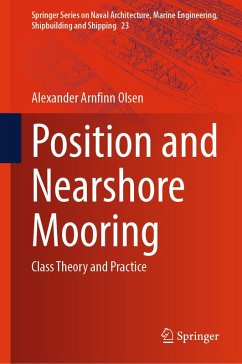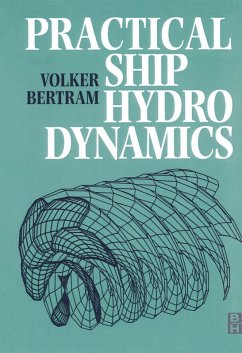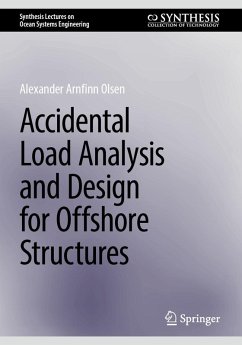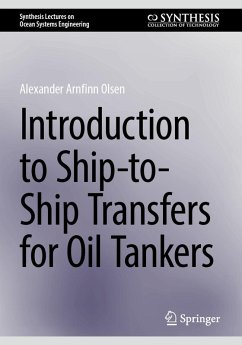
High-Speed Monohull and Hydrofoil Craft (eBook, PDF)
Performance, Technology, and Applications
Versandkostenfrei!
Sofort per Download lieferbar
96,95 €
inkl. MwSt.
Weitere Ausgaben:

PAYBACK Punkte
48 °P sammeln!
High Speed Monohull and Hydrofoil Craft: Performance, Technology, and Applications provides comprehensive coverage of the basic hydrodynamics of high-speed monohulls and hydrofoil craft useful to students and engineers alike. The first half of the book introduces different hull shapes for semi-planing and planing craft with examples from their development through the last century. Succeeding chapters then describe the hydrodynamic theory behind their performance in calm water and a seaway. They also document the extensive series of model test programs naval architects use to create prediction ...
High Speed Monohull and Hydrofoil Craft: Performance, Technology, and Applications provides comprehensive coverage of the basic hydrodynamics of high-speed monohulls and hydrofoil craft useful to students and engineers alike.
The first half of the book introduces different hull shapes for semi-planing and planing craft with examples from their development through the last century. Succeeding chapters then describe the hydrodynamic theory behind their performance in calm water and a seaway. They also document the extensive series of model test programs naval architects use to create prediction models for resistance and powering. Electronic versions of a number of these are included for readers' use. A final chapter on monohulls looks at hull geometric form that has been developed to provide the best possible combination of resistance in waves and motion response through a combination of a deep and sharp forefoot and a hard chine cross-section towards the stern for patrol vessels and offshore logistics craft.
The book's second half introduces the various geometries and planform configurations of hydrofoils under a fast craft hull. It reviews the development of these craft for inland waterways, such as major river systems, and the rougher environment of seaways, such as the Mediterranean and Atlantic oceans. It is followed by hydrofoil theory in an ideal fluid close to a free surface. Then the theory for a real fluid includes the vorticity and effect of planform, dihedral, and surface interaction. Hydrofoil craft design and analysis are covered next. Finally, there is a chapter on special configurations, such as craft having foils just at the bow and hydrofoil craft based on catamaran hulls.
The first half of the book introduces different hull shapes for semi-planing and planing craft with examples from their development through the last century. Succeeding chapters then describe the hydrodynamic theory behind their performance in calm water and a seaway. They also document the extensive series of model test programs naval architects use to create prediction models for resistance and powering. Electronic versions of a number of these are included for readers' use. A final chapter on monohulls looks at hull geometric form that has been developed to provide the best possible combination of resistance in waves and motion response through a combination of a deep and sharp forefoot and a hard chine cross-section towards the stern for patrol vessels and offshore logistics craft.
The book's second half introduces the various geometries and planform configurations of hydrofoils under a fast craft hull. It reviews the development of these craft for inland waterways, such as major river systems, and the rougher environment of seaways, such as the Mediterranean and Atlantic oceans. It is followed by hydrofoil theory in an ideal fluid close to a free surface. Then the theory for a real fluid includes the vorticity and effect of planform, dihedral, and surface interaction. Hydrofoil craft design and analysis are covered next. Finally, there is a chapter on special configurations, such as craft having foils just at the bow and hydrofoil craft based on catamaran hulls.
Dieser Download kann aus rechtlichen Gründen nur mit Rechnungsadresse in A, B, BG, CY, CZ, D, DK, EW, E, FIN, F, GR, HR, H, IRL, I, LT, L, LR, M, NL, PL, P, R, S, SLO, SK ausgeliefert werden.












